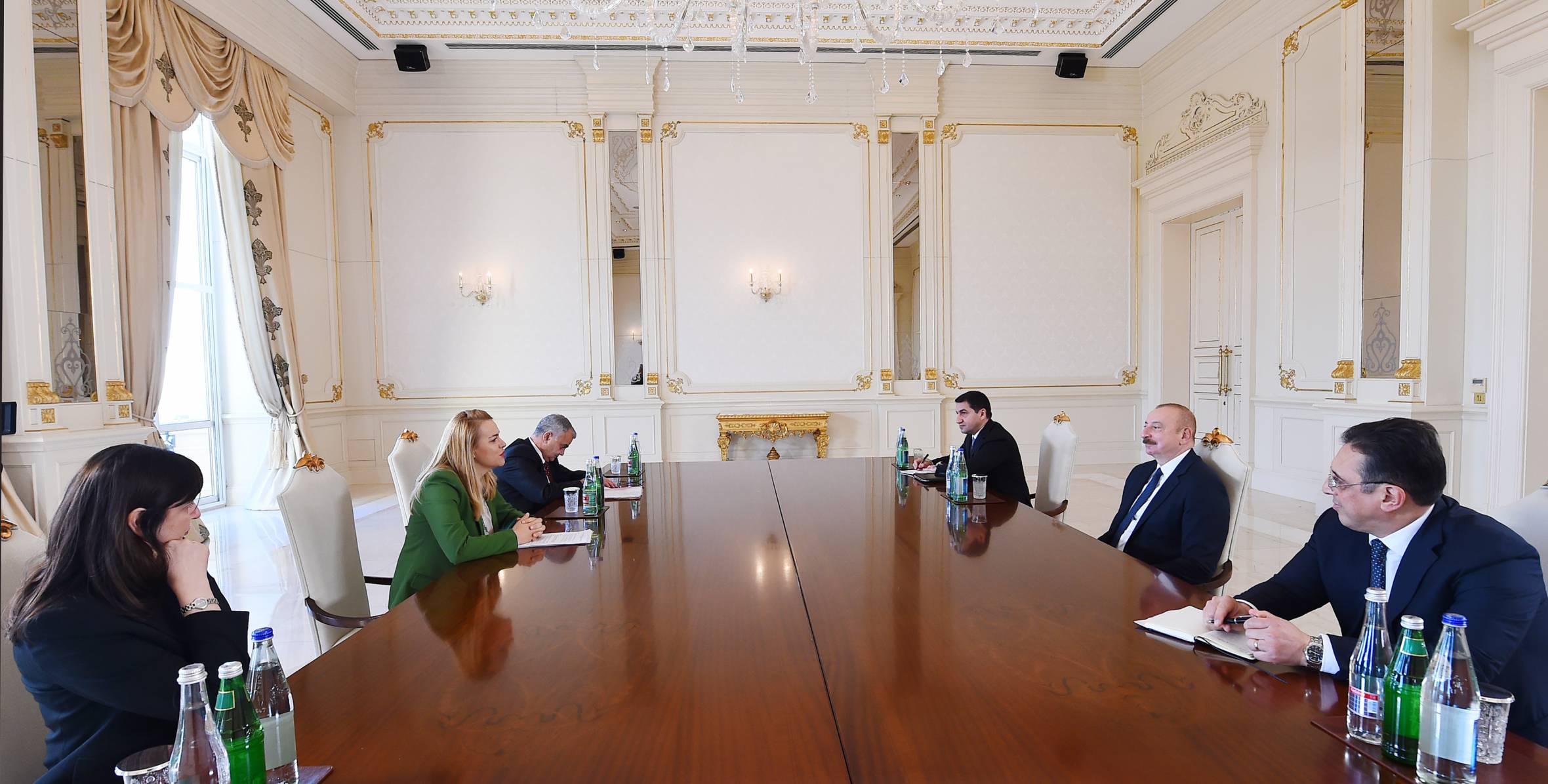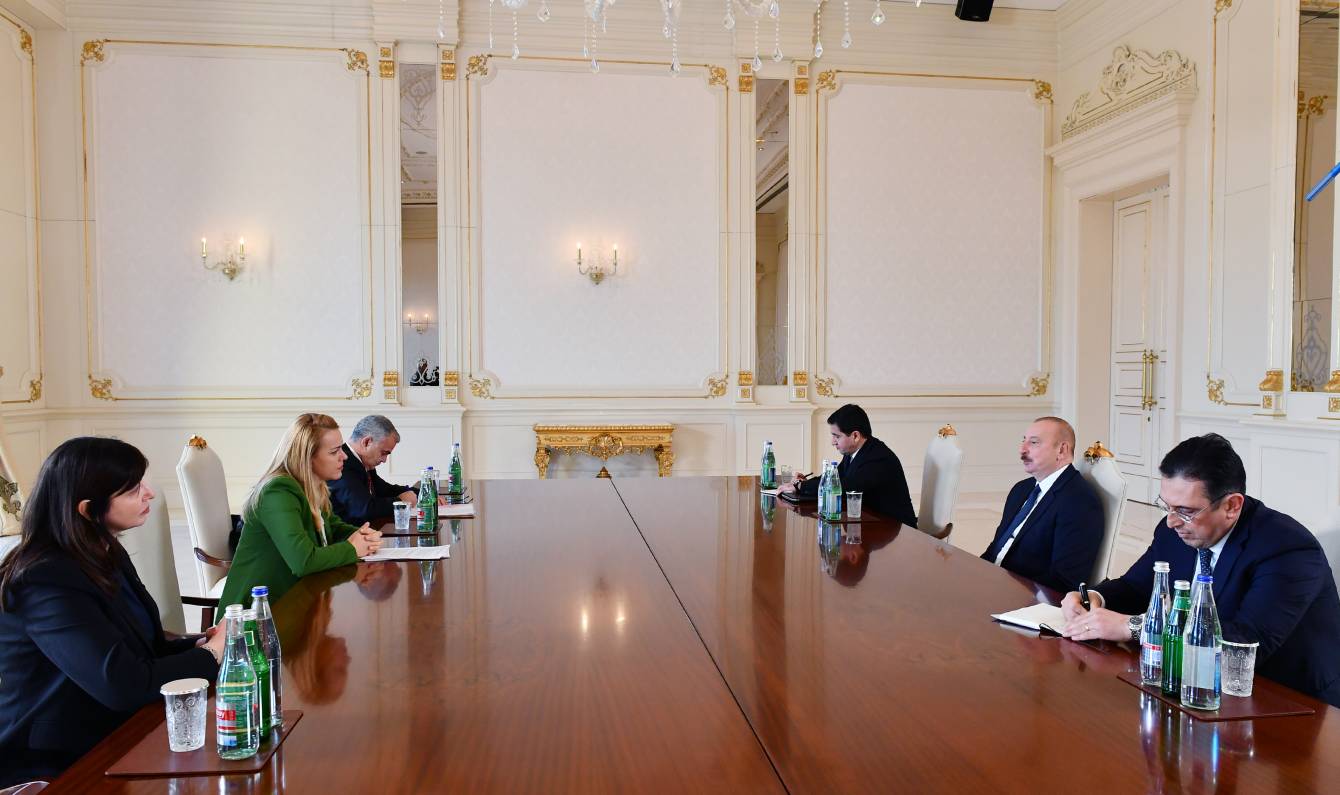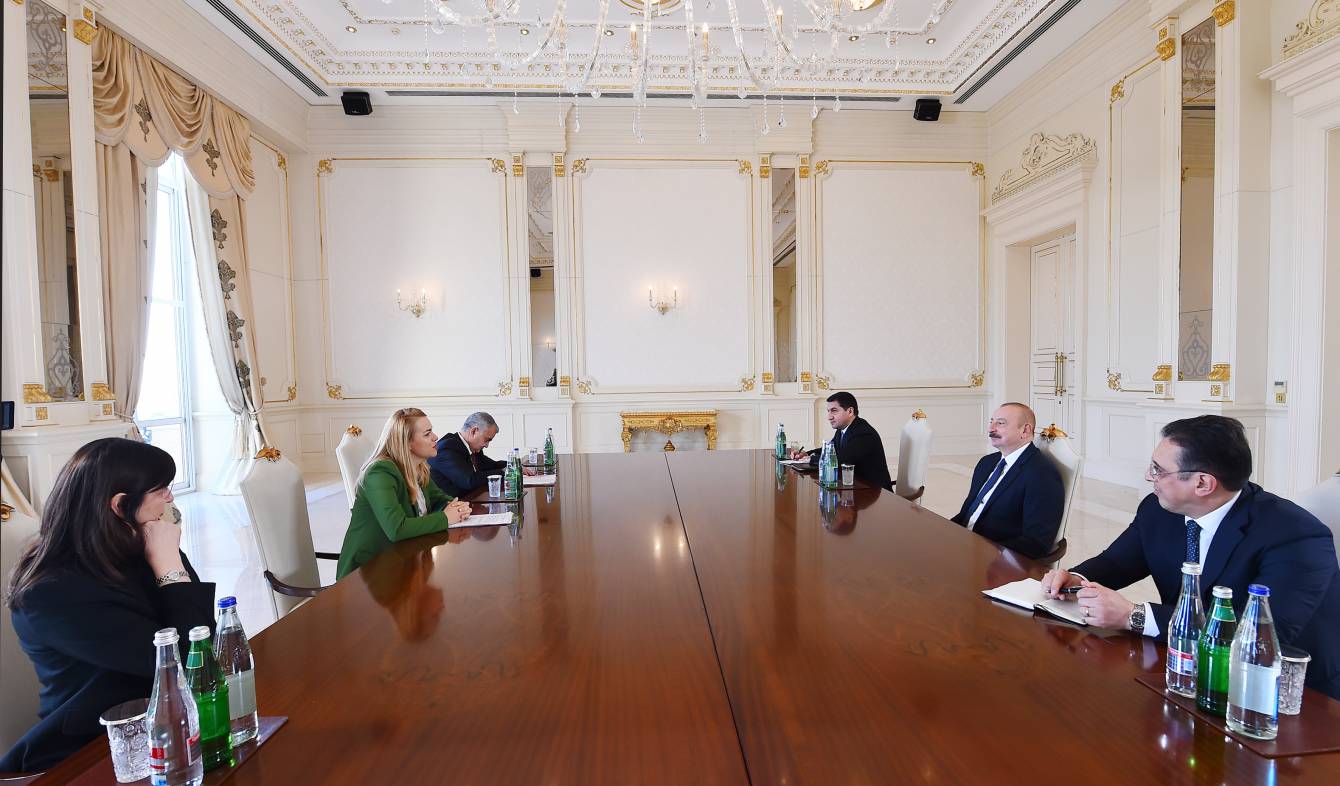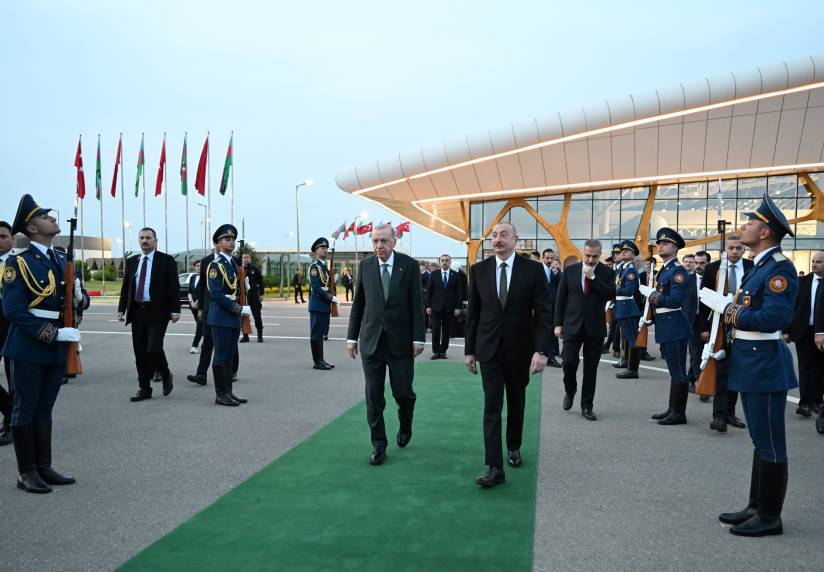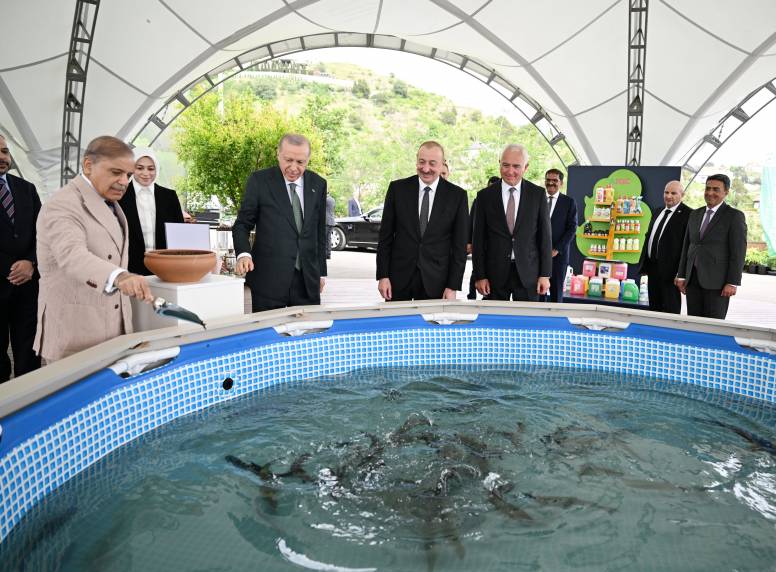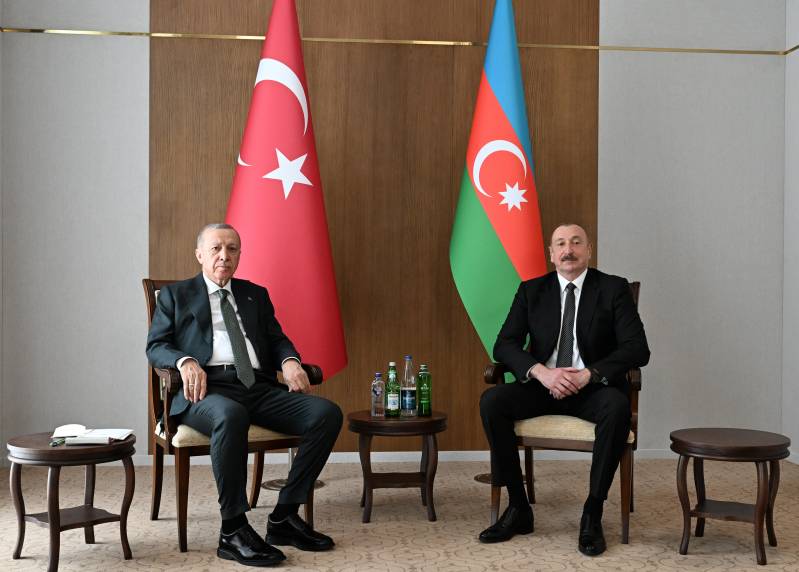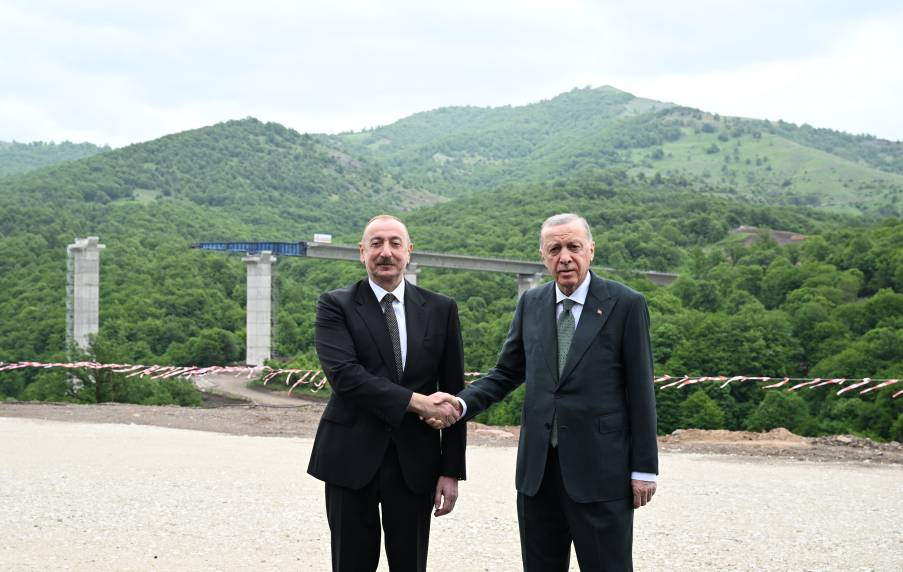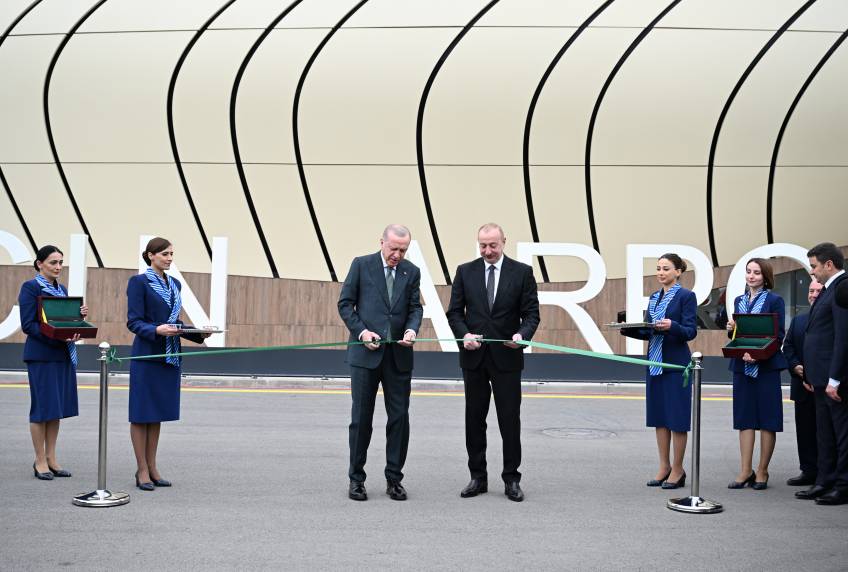President of the Republic of Azerbaijan Ilham Aliyev has received Executive Secretary of the United Nations Economic Commission for Europe (UNECE) Tatiana Molcean.
Saying that close relations have been established between Azerbaijan and the UN Economic Commission for Europe since the country became a member of the institution in 1993, the head of state noted that Azerbaijan enjoys successful cooperation with the Commission in environmental protection, transport, customs, energy, the implementation of Sustainable Development Goals and other areas.
President Ilham Aliyev hailed the participation of delegations of the United Nations Economic Commission for Europe in the international events organized in the country under the chairmanship of Azerbaijan. In this regard, the head of state described the participation of the executive secretaries of the UN Economic Commission for Europe and the UN Economic and Social Commission for Asia and the Pacific in the Summit of the UN Special Programme for the Economies of Central Asia (SPECA) in Baku as an example of the importance attached to cooperation within SPECA.
The President of Azerbaijan recalled that the member countries were in the first stage of their independence, in a different geopolitical and geographical environment, when SPECA was established, stressing that the member countries had successfully developed as independent states during the past period.
President Ilham Aliyev described the holding of the SPECA Summit in Baku as a clear example of the comprehensive and dynamic development of cooperation between Azerbaijan and the Central Asian countries and lauded the expansion of cooperation between Azerbaijan and the countries of the region in political, economic, transport and other areas over the past years. The head of state emphasized that the SPECA member countries present a successful regional model as a result of close cooperation. “This is also a clear manifestation of Azerbaijan and the Central Asian countries expressing a single political, economic and geopolitical space, as well as an example of Azerbaijan`s determination and intention to expand cooperation with the Central Asian countries even further.”
Thanking for the invitation, Tatiana Molcean praised Azerbaijan`s successful chairmanship of SPECA and described holding the Summit in this format for the first time as a significant achievement.
Noting that there are excellent prospects for cooperation under Azerbaijan’s SPECA chairmanship, Executive Secretary of the United Nations Economic Commission for Europe (UNECE) Tatiana Molcean emphasized that the Summit coincides with the 25th anniversary of the establishment of SPECA and, in this regard, stressed the importance of adopting a resolution concerning the establishment of SPECA at the UN General Assembly.
Tatiana Molcean said she is satisfied to represent the UN Secretary-General at the SPECA Summit. She underlined that this Summit is of great importance in terms of developing cooperation between SPECA member countries in areas of mutual interest and discussing priorities and challenges. Tatiana Molcean said she was pleased to participate as a co-chair in the discussions to be held as part of the UN Economic Commission for Europe.
The meeting also saw discussions on transport corridors, urban forestry concepts, increasing green space in cities, transition to a balanced and successful renewable and green energy concept in Azerbaijan, and initiatives the country has put forward in this regard.
They hailed the expansion of transport opportunities with the Central Asian nations, the importance of the Middle Corridor, and investments made by Azerbaijan in developing transport infrastructure within the country and neighboring countries. In this regard, the expansion of cooperation with the UN Economic Commission for Europe was discussed.
During the conversation, they highlighted the importance of the “Convention on Environmental Impact Assessment in a Transboundary Context” – Espoo Convention, stressed the significance of promoting this Convention in the region, ensuring the environmental purity of water bodies and rivers in the region, as well as the need to take into account the neighboring countries’ concerns regarding mining works.

